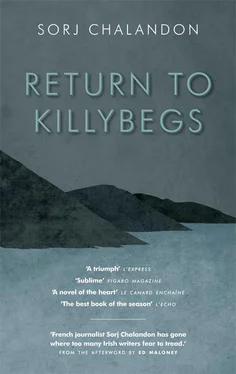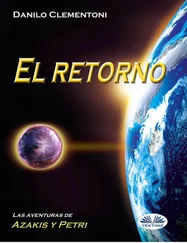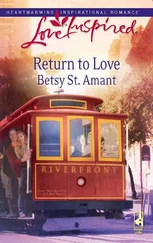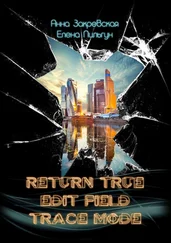— We should meet death head on, he used to say.
And the whole evening, I’d continue to watch. I’d be drinking, laughing, chatting along with the others, but my mind would be alert and my gut tense. I enjoyed that tension. And the more time that passed, the stiffer my body became.
Whenever the British entered the club, the Fianna would alert us.
— Brits!
I used to love when they’d come. It was a pure moment of defiance. The lookouts would have seen their armoured vehicles arrive. The doormen would leave them waiting a moment, under the white pub spotlights, behind the heavy iron grills. You could see them on the security screens, though not very clearly. While the electric bolt was slamming back into the striking plate, the glasses would rapidly change places on the tables. An IRA óglach on active service who had been sitting there bored by his orange juice since the start of the night would play the drunkard in front of the pints his neighbours had just slid over to him. The soldiers would observe all of it. The drinks, the interactions, the bags left on the ground. They’d move between the chairs, making out faces. They would look for the guys who had got away from them, the bad boys. We didn’t make eye contact. Sometimes they would poke a bit of fun.
— You’ve got rid of the moustache, Jim? You look better like that.
And Jim O’Leary would hold himself back from spitting on the ground.
When the band wasn’t playing, the club would remain silent. An absolute silence. Not a single word, no laughter, not one more rustle. Just the enemy’s footfalls on the floor. But when the music was interrupted by the entrance of the uniformed men, the singer would move forward to the microphone.
— Ladies and gentlemen, the Irish national anthem.
And the room would stand. The young, the old, the priest passing through, the wee girls collecting for the school fête, the grouchy nationalists, the Sunday Republicans, the Catholics whose only belief was the Resurrection, the soldiers of the Republic, the women in charge of the sandwiches, the barmen, the kitchen porters, those who had been on their way out and were already at the exit: everyone would stand to attention. Our enemies would brush past our soldiers. And they knew it.
Once, my eyes locked with one of them. A Scottish lad, wearing his forage cap with its red and white plume. His rifle was shaking. He was out of place, in the midst of silvery set hairdos, red lips, walking sticks, faded jackets, clenched fists, Saturday-night dresses. The serviceman gave me a long look and apologized with his eyes. I know it, I’m certain. He was sorry. He knit his brows and murmured something as he passed me by. His uniform looked like it was weighing him down. He was walking backwards, the way soldiers did when they were aiming at our windows. He knocked into a table. A glass fell. He picked it up. He joined the others, straightening his bulletproof vest.
— Dirty monkey! a woman spat.
I gave her a hard look. The soldier was black.
Paddy Moloney had offered me one for the road, the shot you throw into the end of your pint of Guinness when the owner says it’s time to go home. I was drunk. I pissed in the street, between two cars. I was overwhelmed by my bitterness. It was dark. The wind had picked up. When I passed the park, I saw the torn pieces of paper promising Paris lying on the grass. Sheila was going to win her trip, I knew that. In a few days, a telephone call would announce it. She’d have her photo in the Andersonstown News , radiant, our plane tickets in her hand. She would pack our suitcase, worry about everything and yet everything would delight her. Sheila had never been abroad. Neither had I. All we knew of the world ended where our street did.
I looked at the clouds on top of an Sliabh Dubh — the black mountain. Neither the city nor the sky was hostile. It was still my city and my sky. I could meet people’s gaze without having to lower my eyes. But I knew that in a few days, all that would end.
I wanted to turn myself in to the IRA. And then again, I was afraid. But not of dying. I was living in the wake of Danny’s death, and to confess would have been asking his forgiveness. If I could be certain that the IRA was ready to follow me, and therefore judge me, to destroy that symbol along with me, to tear a glorious page from our history book, I would have done it. But I was convinced the opposite would be true. Our leaders would not risk the truth. I remembered the Army Council’s visit to my sickbed. Danny the martyr, Tyrone the hero. Above all, don’t get in the way of our history’s progress. That’s what I was afraid of. Afraid of confessing the truth for nothing, of begging for leniency for nothing. My enemies were making the most of the lie? That was in their nature. But I didn’t like to think my OCs would do the same.
I would have found myself alone once more with the confession, without a soul to listen to it. The IRA would have kept me on a leash like the Brits were going to do. The Army Council would have forced me to collaborate with the enemy. It would have made me a double agent, lying to one side, lying to the other, in danger in both camps, and despised by both. That was my fear. To no longer serve the Republic out of conviction but due to blackmail. To go from soldier to victim.
For several nights, I couldn’t sleep. Then one morning, on waking after having rested at last, my decision was made. I was going to deceive my people so that the IRA wouldn’t have to do so. In betraying my side, I was protecting it. In betraying the IRA, I was preserving it.
— To accept the augur of betrayal.
I was repeating this phrase as I stumbled towards the house. It was the black bead of my new rosary. I passed Jim O’Leary at the bottom of the Falls Road. Three lads from the 2nd Battalion followed him closely, as if they didn’t know each other. They were in a hurry. On active service. A wink in passing.
I had to set the Brits conditions. No question of helping put Jim or those other three in prison. No arrests, no victims. I had to be contributing to peace, not suffering. I wasn’t a peeler, but an Irish patriot. I needed guarantees.
— Guarantees. I want guarantees.
I was speaking out loud. I felt the need to piss again. I shivered, thinking of the poster on the wall of the pub. This time, the words were referring to me. Traitor. Traitor. Traitor. I would have to find another word, or tell myself that a traitor was also a victim of war. I passed our front door, I kept going. Another walk around the block in the night. I heard the metallic crackling of a radio. The soldiers were lying in a garden, behind the hedges and the coloured dwarfs. They had smeared their hands and faces in shoe polish. Only their eyes glowed in the darkness. Hi guys. Welcome, my new-found friends.
— If you agree to work for us, it’s to save your reputation, not to save your skin, the handler had said to me.
He was right. I didn’t want to destroy the great Tyrone Meehan. I didn’t give a fuck about the IRA. That business of betraying so as not to betray was a fiction I was trying to tell myself. I took fright at the presence of the other in me. I disgusted myself. All my life I’d ferreted out traitors, never realizing that the worst of them all was hidden in my belly. I hadn’t seen that one coming. I’d never noticed him. With that face of his, his soft cap, his threadbare jacket. He was colliding with lamp posts. Laughing at nothing. Vomiting the evening up against a wall. Hurling abuse at the shadow who had come over to help him. He slipped and fell, getting up again with difficulty. He was singing the refrain of Danny’s song. He was already alone. He’d become a bastard, like his father. That is to say, in the end, a man of no importance.
Читать дальше












